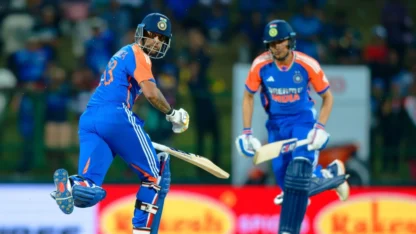Betting Regulation: What can India Learn from the West? – Sweden introduced gaming licences for private operators on January 1, 2019, after years of state monopoly on gambling that proved ineffective against offshore-based online casinos. The UK Gambling Commission imposed stricter regulations during the Covid-19 pandemic and France has been there for a while. India doesn’t need to invent hot water, we can just look at these examples.
International Licenses or National Regulation
A recently published comparative study by RMG market analysts Esse N Videri Media (ENV Media) takes a close look into the various gambling and betting licensing and regulation regimes around the world. The research paper pays special attention to the contemporary trends in the field of international and national licensing on gaming and the successful practices employed by mature markets like Sweden and the UK.
By definition, reputable betting sites in India work under first-rate international licenses such as those issued by the Malta Gaming Authority (MGA), the Curaçao Gaming Control Board (CGCB), the Gibraltar Licensing Authority (GLA), or some others.
These international licenses function as a stamp of approval and an unquestionable proof that the licensed site is reliable and trustworthy and is conforming to numerous strict requirements. These include integrity of random number generators (RNG) and return-to-player algorithms, sound anti-money laundering policies, and quite importantly – consumer protection measures like responsible gaming mechanisms and problem gaming addresal.
National Regulation is Commonly Used to Bring Control over the Betting Sector
Such internationally licensed sites are safe for a desi player, but they pay their corporate and other taxes outside Bharat, and the same is valid for their licensing fees which can be quite substantial amounts. Offshore-licensed sites also are not obligated to conform to any specific rules that Indian authorities might impose on online betting
This is among the main reasons, as the ENV Media experts point out, mature markets to “have the practice of imposing government-regulated licenses via specially designated authorities. The dedicated administrative body enforces and monitors a gaming landscape envisioned by legislators and, ultimately, by local societal expectations.”
Besides securing substantial revenues from taxes, license fees and incomes from related activities, by forcing operators to get licensed, regulation forces them to observe all relevant national rules. This brings “a lot more consumer protection and attention to details related to territorial and cultural specifics.”
Sweden is a Leading and Recent Example
Betting and gambling in Sweden was a state monopoly until the end of 2018 when the country transitioned to a licensing regime for private operators. The change was moved by the desire to bring control over the influx of online casinos based offshore, providing them with access to the Swedish market in exchange of greater responsibilities.
Powers to grant, review and revoke gaming licenses were vested to the Swedish Gambling Authority (SGA) with focus given to active harm prevention and consumer protection. Responsible gaming mechanisms and a national self-exclusion program were stressed and the presence of respective buttons made mandatory for every page.
Based on 2018-2019 case studies by researchers from the Stockholm University on the peculiarities and practices of the local market, the current obligations of licensed betting and gambling operators in the Scandinavian country include no gaming on credit, no fast play on slot games, no loyalty and VIP programs, just one bonus per player from any operator, etc.
At the same time, match fixing was criminalized, penalties for illegal gaming were increased, and ISPs were required to block payments to unlicensed operators.
The UK is a Classic Example of Good Regulation Practices
The licensing, regulation, and the provision of advice and guidance to online and land-based gambling businesses operating in Great Britain falls under the ambit of the United Kingdom Gambling Commission (UKGC).
British regulation and the Gambling Act of 2005 focus on responsible gaming, transparency and honest advertising. At the same time, the UKGC is being helped by independent consumer protection and mediation firms such as the Advertising Standards Agency (ASA) and the Alternative Disputes Resolution company (ADR).
During the lockdowns of the pandemic, UK gambling restrictions were tightened with the imposition of stricter requirements on age verification, prohibition on gambling with credit cards and limitations on VIP and high-roller offers.
The UK is considered a mature and very sophisticated market with high levels of horizontal and vertical integration, and is often used as an example of good regulation practices.
France has Old Gaming Traditions
Roulette, one of the world’s most popular casino games, was born in France together with a few card games and parimutuel betting (French for “mutual betting”). The country legalized a number of land-based games in the 1980s, and in 2010 welcomed online gambling.
The French National Gambling Authority (ANJ) is issuing separate licenses for three gambling products: poker, horse race betting and sports betting after approving the used software itself and not the platform that offers it. Besides strict anti-money laundering regulations, consumer protection standards are exceptionally high.
Editor's Pick
 Cricket
Abhishek Sharma backs Shubman Gill & Suryakumar Yadav to win matches at T20 World Cup
Cricket
Abhishek Sharma backs Shubman Gill & Suryakumar Yadav to win matches at T20 World Cup













































